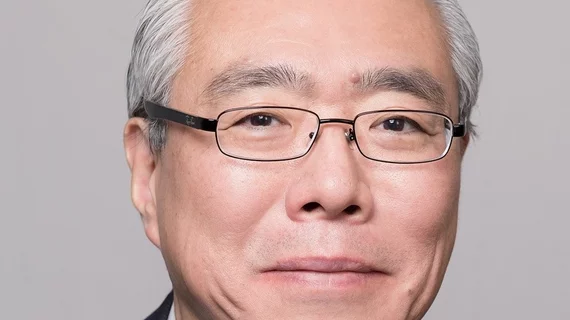Satoshi Minoshima elected SNMMI president during annual meeting
Satoshi Minoshima, MD, PhD, officially assumed office as 2018-2019 president of the Society of Nuclear Medicine and Molecular Imaging (SNMMI) at the SNMMI 2018 Annual Meeting in Philadelphia.
Minoshima is the chair of the department of radiology and imaging sciences at the University of Utah in Salt Lake City. He is also an award-winning researcher who has authored numerous studies on neurodegenerative diseases and other brain disorders. Within SNMMI, he has served as president of the SNMMI Brain Imaging Council and chair of the SNMMI Scientific Program Committee.
As president, Minoshima said in a prepared statement, he will “vigorously pursue the second stage of SNMMI’s Value Initiative—Value Initiative 2.0.”
“We will advance our strong research and development efforts in theranostics, new biomarkers and instrumentation,” he said. “We will support current and future value-focused practice of nuclear medicine and molecular imaging through creation of guidelines and care pathways. We will focus on advocacy to advance reimbursement strategies for our high-value patient care. We will strategize our future training pathways and promote our members’ leadership in the imaging and healthcare fields. We will continue our prolific outreach efforts to patients, referral communities and other stakeholders. And, we will promote diversity in workforce and leadership.”
Also during the SNMMI 2018 Annual Meeting, Vasken Dilsizian, MD, was elected as the society’s president-elect. Alan B. Packard, PhD, was elected vice president-elect.
In February 2017, Minoshima published an editorial for Radiology Business. It is available here.

